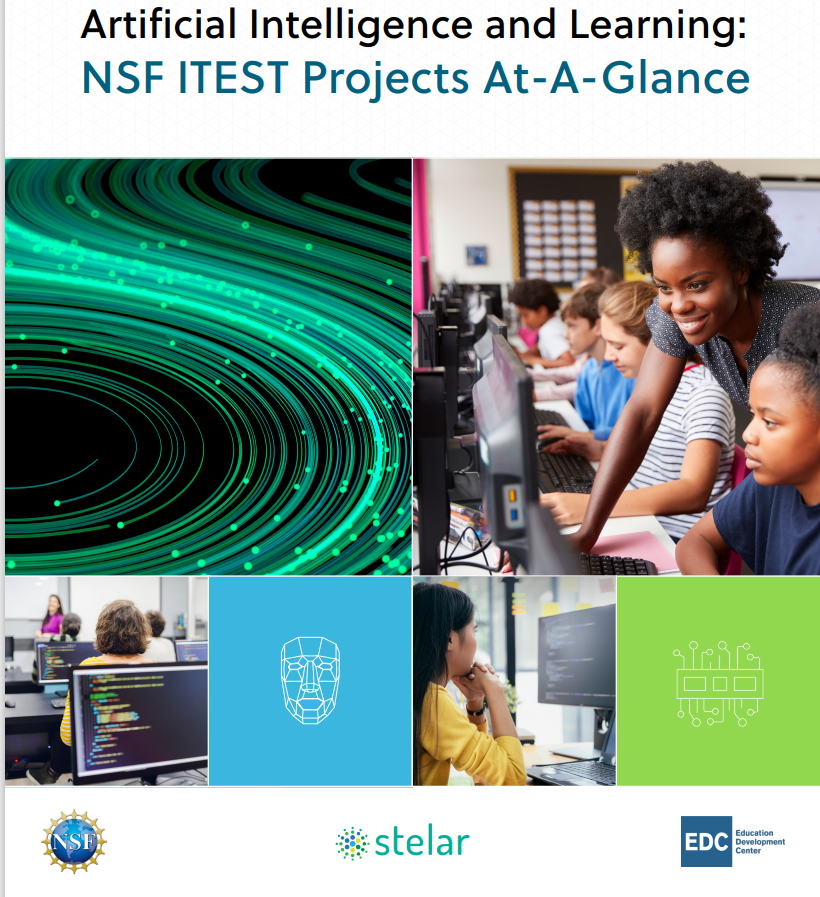Artificial Intelligence and Learning: NSF ITEST Projects At-A-Glance
PublicationImage

Artificial intelligence (AI) is permeating the world around us, changing the ways we live, work, and learn. The National Science Foundation (NSF) lists AI as one of its organization-wide priorities, and is encouraging programs like ITEST to pursue what it means to prepare youth for careers in AI. In response to this, the STELAR convened an AI working group comprised of more than 20 projects funded through a variety of NSF programs. This paper is designed to highlight the areas being explored by these projects, to provide an overview of what has been funded within the ITEST portfolio to date